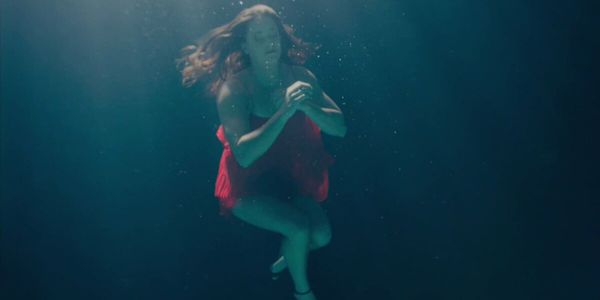NADIA, BUTTERFLY: Contending With The End Of An Era

Soham Gadre is a writer/filmmaker in the Washington D.C. area.…
When we consider the realities of being an athlete, we’re always taught it’s about grit, determination, never quitting, and pushing through any sort of obstacle that’s in the way. Hardly is the vulnerability, dissatisfaction, and overall existential crisis part of the conversation. After watching Giannis Antetokuonmpo win an NBA championship, every bit of coverage was about overcoming failure rather than embracing limitations and finding happiness, two things which Giannis made explicit about what his victory meant to him. When athletes like Simone Biles and Naomi Osaka take time off or disappear from the spotlight to concentrate on mental health, there are still raging debates about whether such vulnerability is a virtue or a red flag. It’s for these reasons why Nadia, Butterfly is so striking as a sports movie and as a portrait of an athlete.
Nadia, Interrupted
The most unique factor of this movie as a “sports film” is that it takes place at the end of a career rather than at the beginning. It is reflective of existence that most of us have no idea about but look forward in contemplating an uncertain future that many of us are all too familiar with. The movie centers on Nadia (played brilliantly by real-life Canadian Olympic medalist swimmer Katerine Savard) who is coming close to the end of her time with the Canadian national swim team and has medical school lined up in her future. Her presence in the movie is one of self-contained meditative silence, signaling her unique place on the team in respect to her teammates who are all continuing their traditions as Olympic athletes.

The movie deftly showcases the different stages and experiences of Olympic athletes on a single team. All of Nadia’s teammates exist at different parts of their lives and careers – Karen (Hillary Caldwell) is married and a bit older than the rest, Jess (Cailin McMurray) is the youngest, inexperienced in both life and athlete lifestyle, and Marie-Pierre (Ariane Mainville) is Nadia’s contemporary, similar in age, but much more carefree, extroverted, and still dedicated to swimming. These differences create both bonds and arguments within the team, and as time goes on, Nadia becomes more and more flustered with her waning place as part of the group.
Breaking Away
Pascal Plante gives a meditative look at the dedicated, planned, and routine conditioning of athletes in the Olympics, from massages, training, practice, rigorous diet, and tricks to loosen muscles and relieve stress. Like fellow Canadian Denis Côté’s Ta peau se lisse (A Skin so Soft), which explored the similarly unconventional and rigorous lives of strongmen and bodybuilders, Plante’s repetitive and quiet sequences, complemented by still frames which focus on particular body parts, muscles, hair, and skin, display how this meticulous lifestyle of conditioning becomes a mechanical habit over time.
As the movie goes on and Nadia’s life as a swimmer comes to a close, we witness a slow, Jeanne Dielman-esque deterioration of these habits and meditative routines. Nadia still does her exercises, but not as many. She eats a little less healthy, maybe a cupcake or brownie here or there. She sleeps in late. Plante’s attention to these small details adds to the intimacy of the movie’s depiction of life transitioning itself out of the only thing it has known to something totally alien. It also utilizes this unraveling to pierce into the psychological release of Nadia from the pressures, anticipations, and expectations of her teammates, coaches, and her own ego.

Conclusion
While the movie is introspective, it isn’t an enigmatic movie. It spells its problems and solutions out plainly but not in a simplistic or un-revealing manner. There is a deep empathy at play for Nadia and people like her. Plante showcases a humanism, matched by Katerine Sevard’s musing performance, that hits at the quiet and unsensational moments of an athlete’s life and career coming to a halt. It’s a nice departure from the bombardment of motivational ‘rise & grind’ hammering of sports culture to see a movie that really understands its central athlete as a person over everything else.
Have you seen Nadia, Butterfly? What did you think? Let us know in the comments below!
Nadia, Butterfly is streaming in select virtual theaters in the U.S.
Watch Nadia, Butterfly
Does content like this matter to you?
Become a Member and support film journalism. Unlock access to all of Film Inquiry`s great articles. Join a community of like-minded readers who are passionate about cinema - get access to our private members Network, give back to independent filmmakers, and more.
Soham Gadre is a writer/filmmaker in the Washington D.C. area. He has written for Hyperallergic, MUBI Notebook, Popula, Vague Visages, and Bustle among others. He also works full-time for an environmental non-profit and is a screener for the Environmental Film Festival. Outside of film, he is a Chicago Bulls fan and frequenter of gastropubs.













